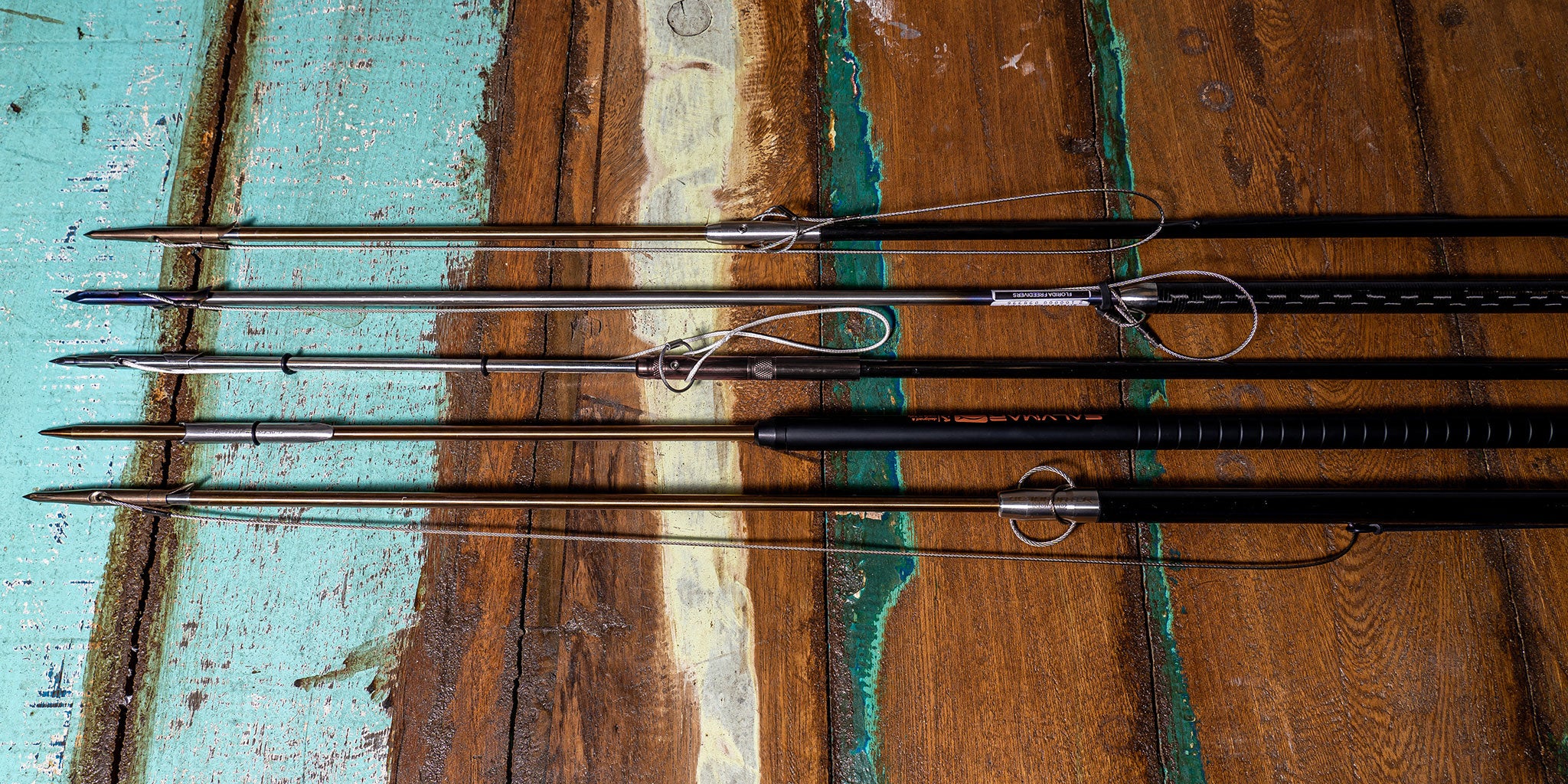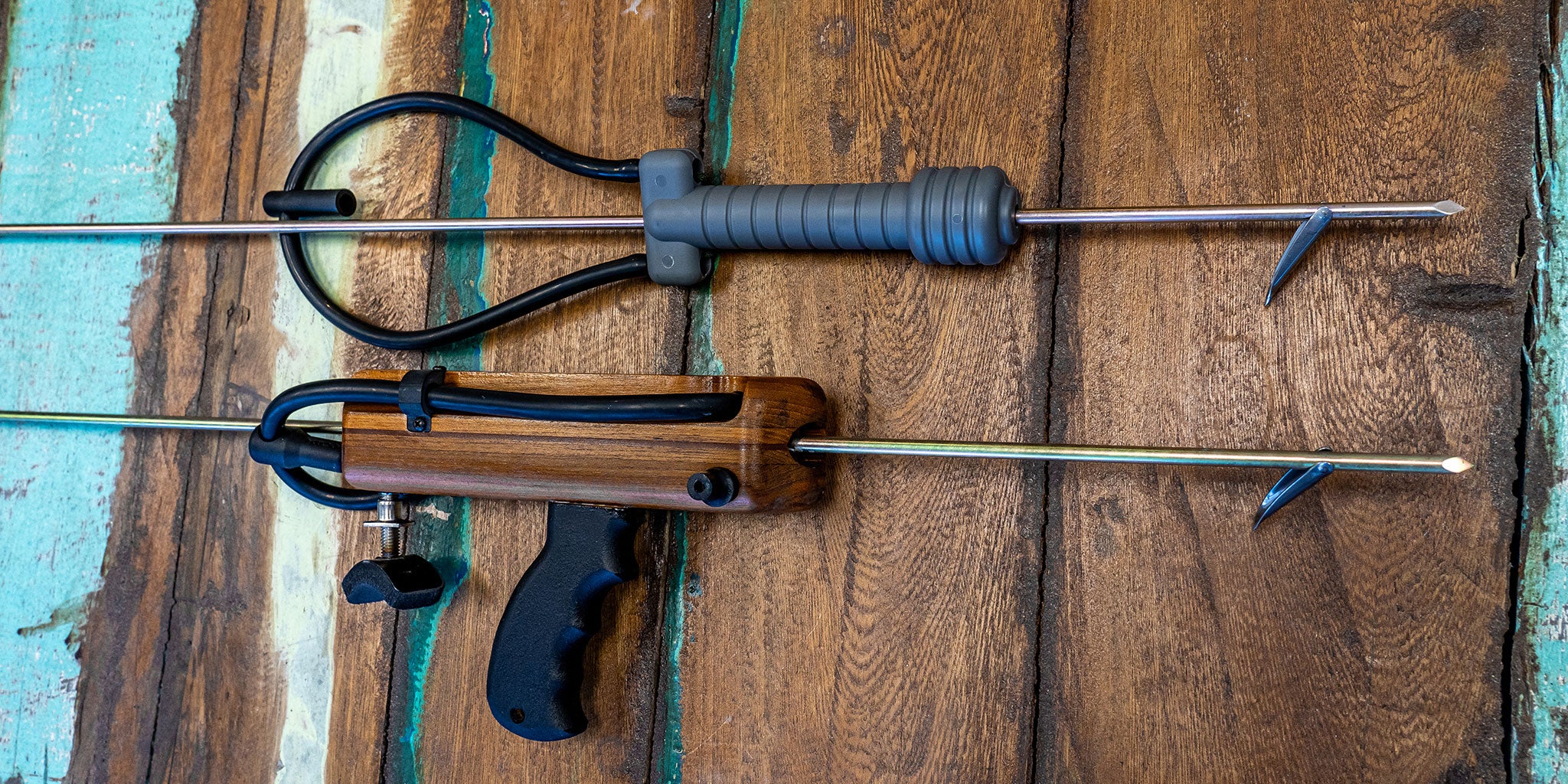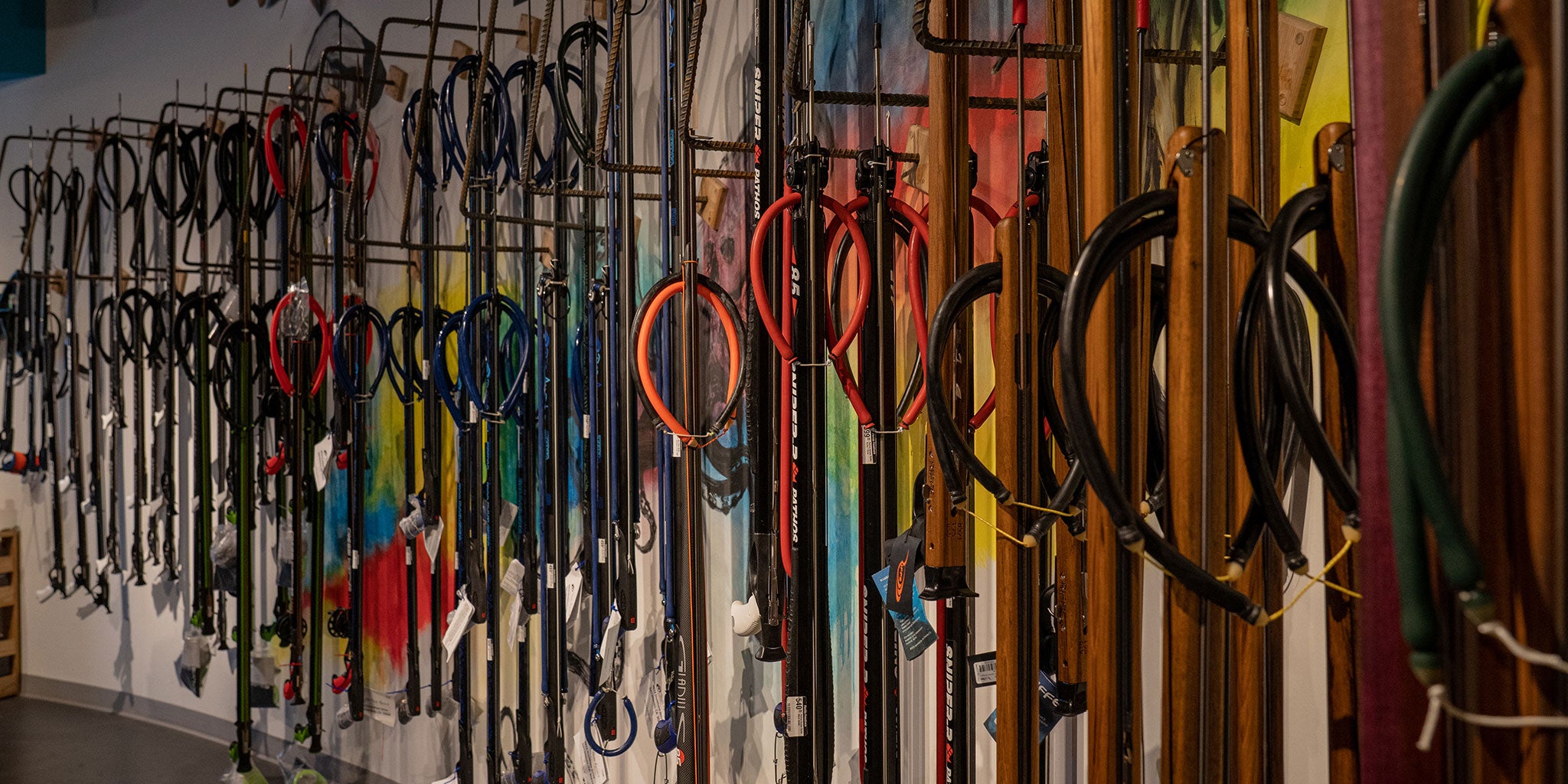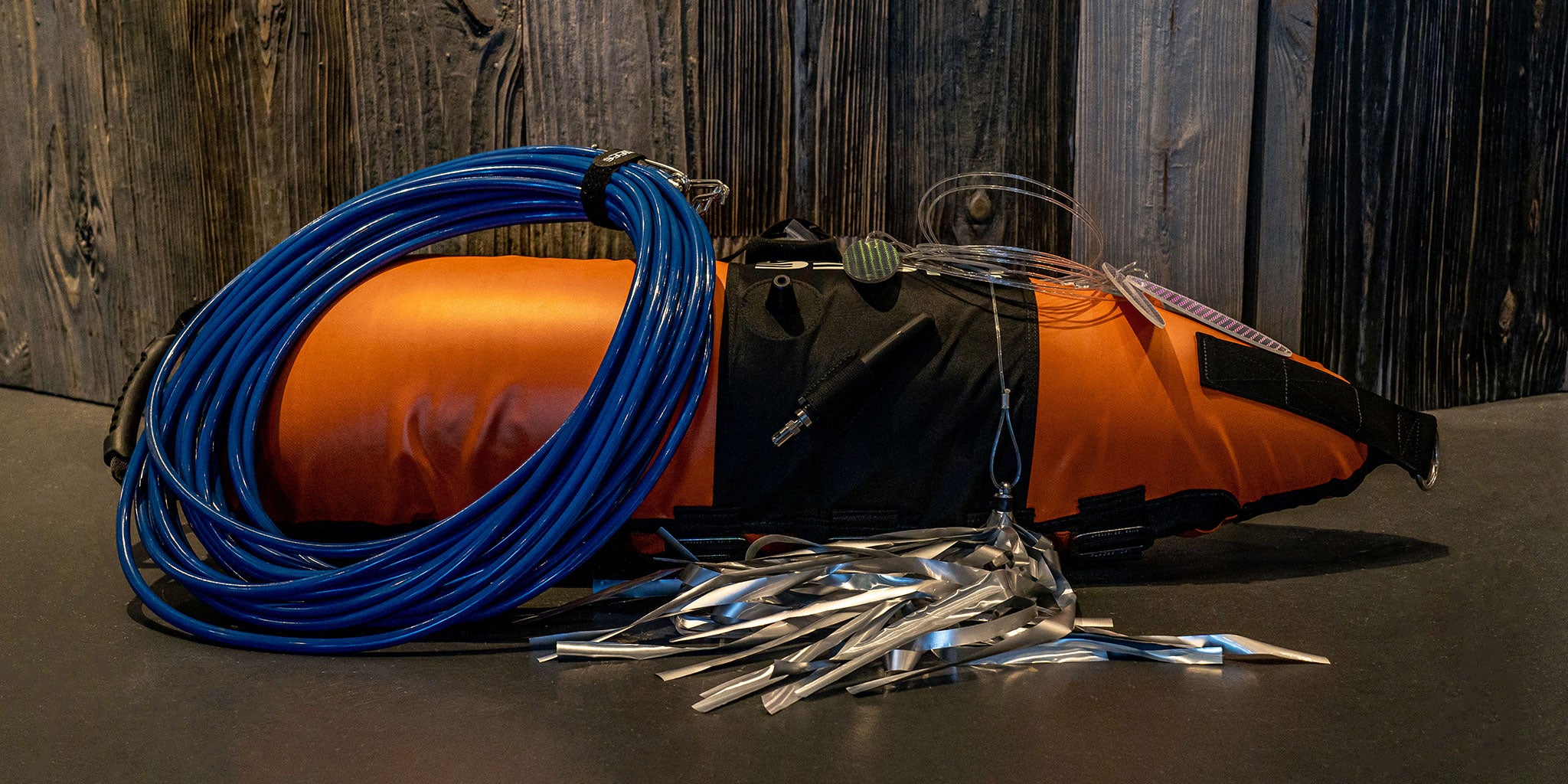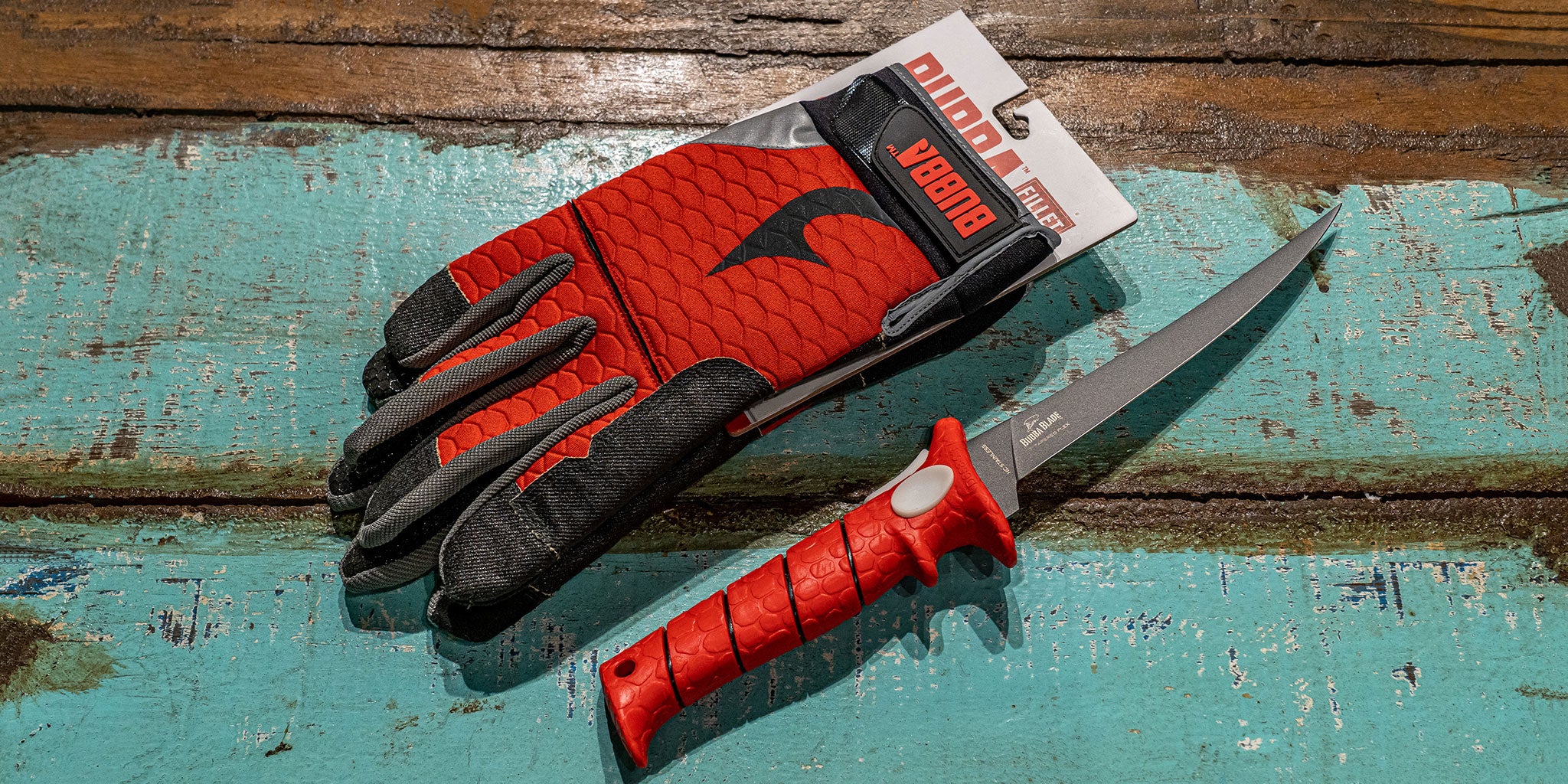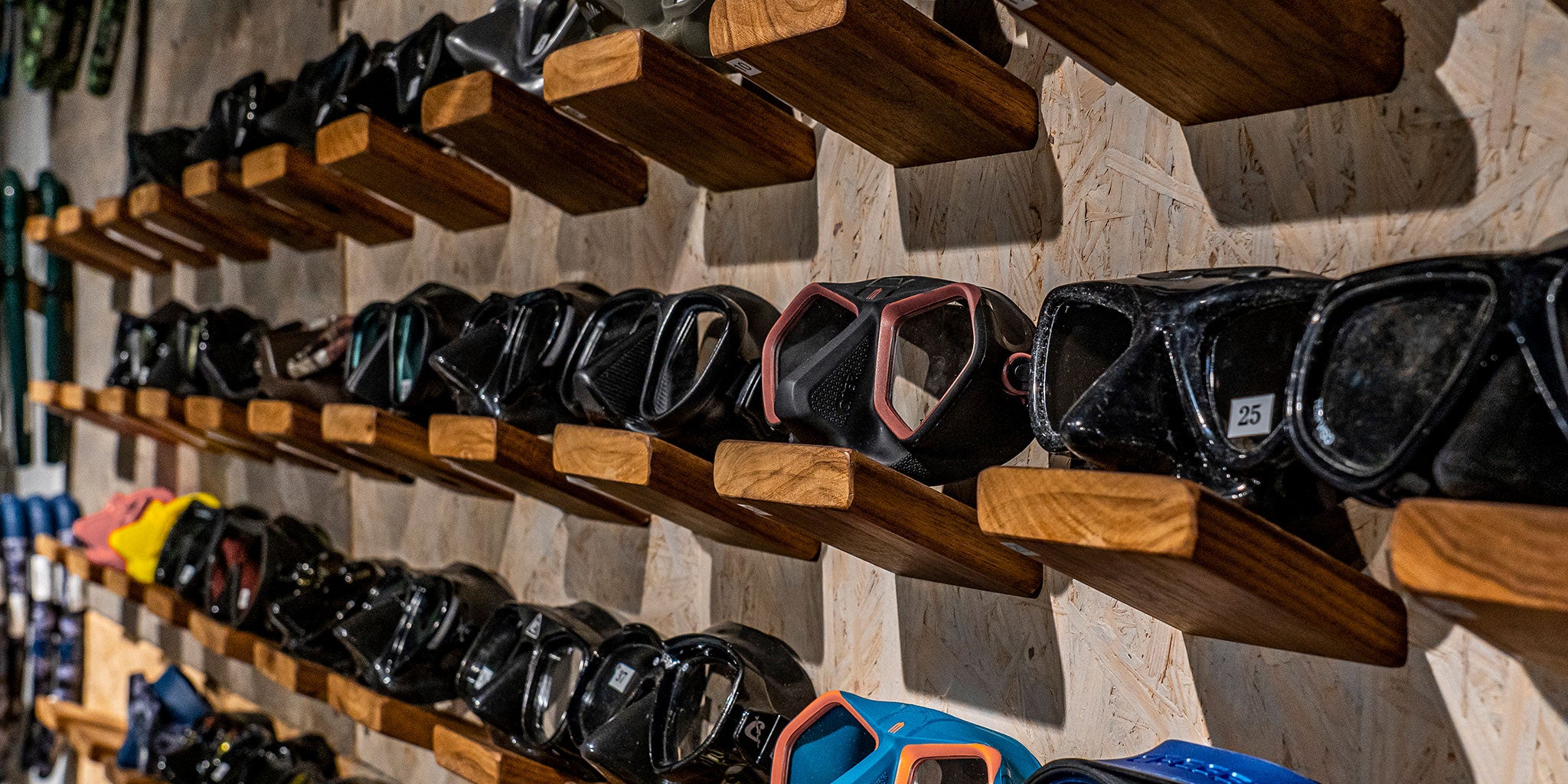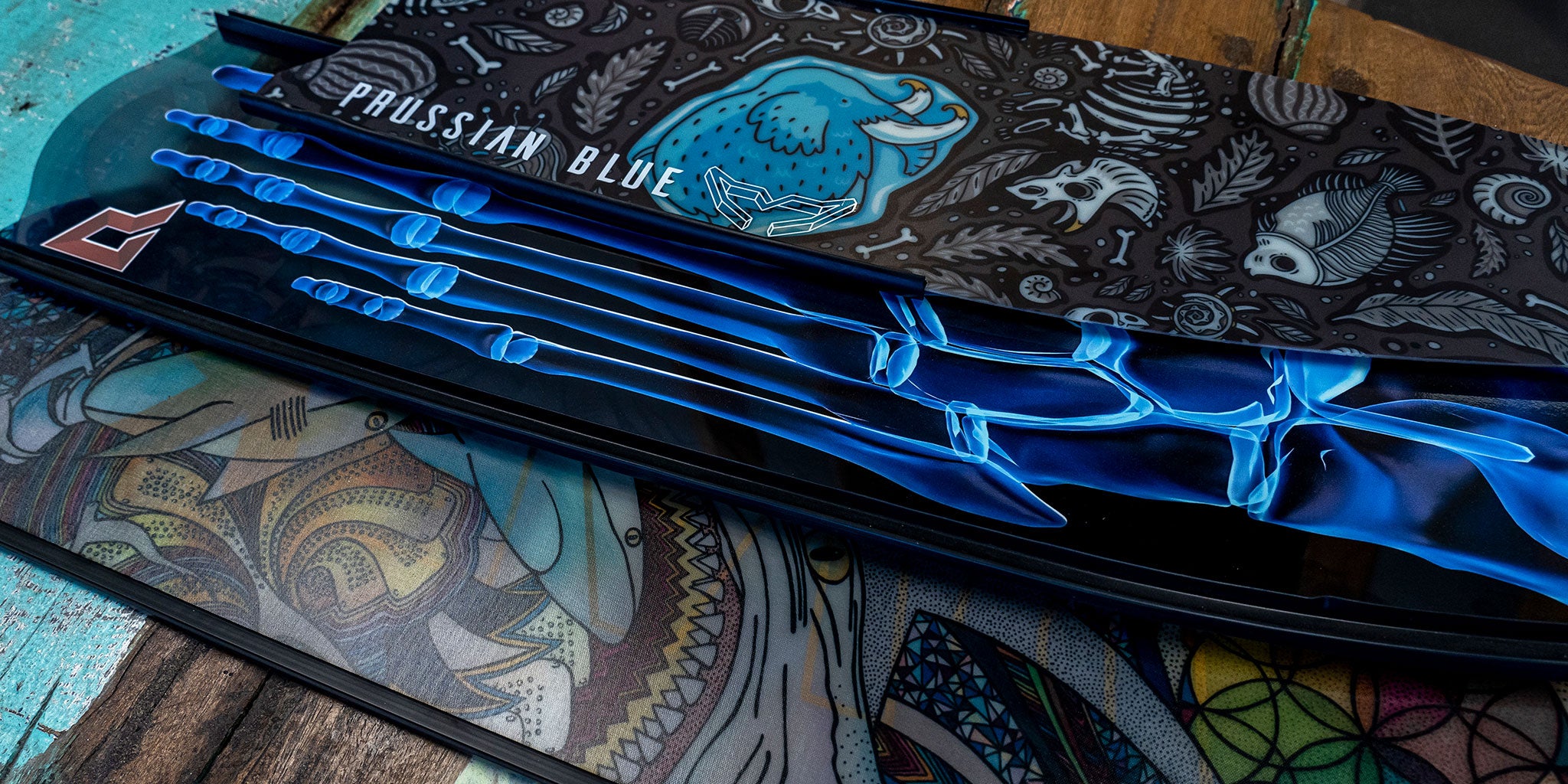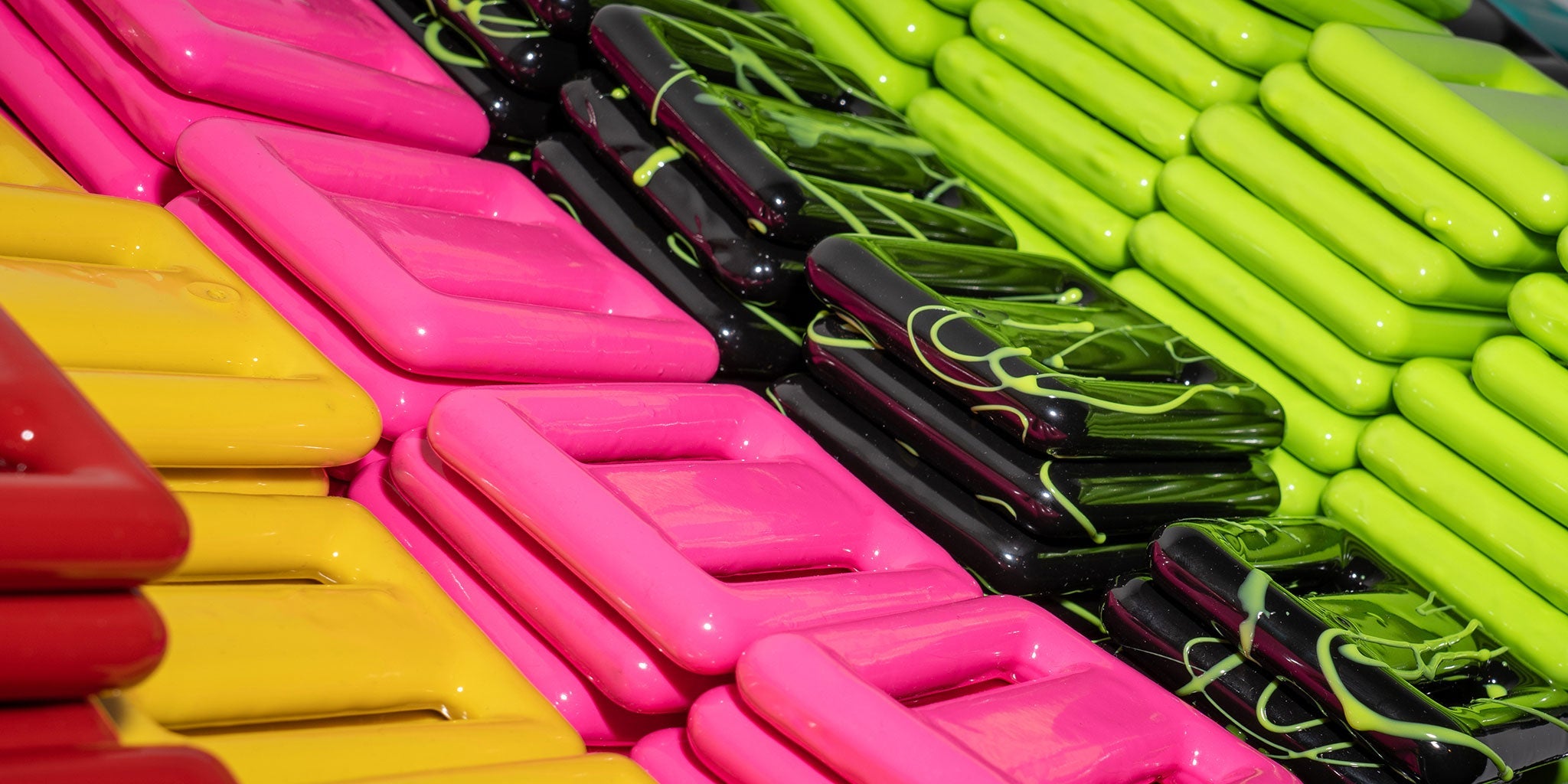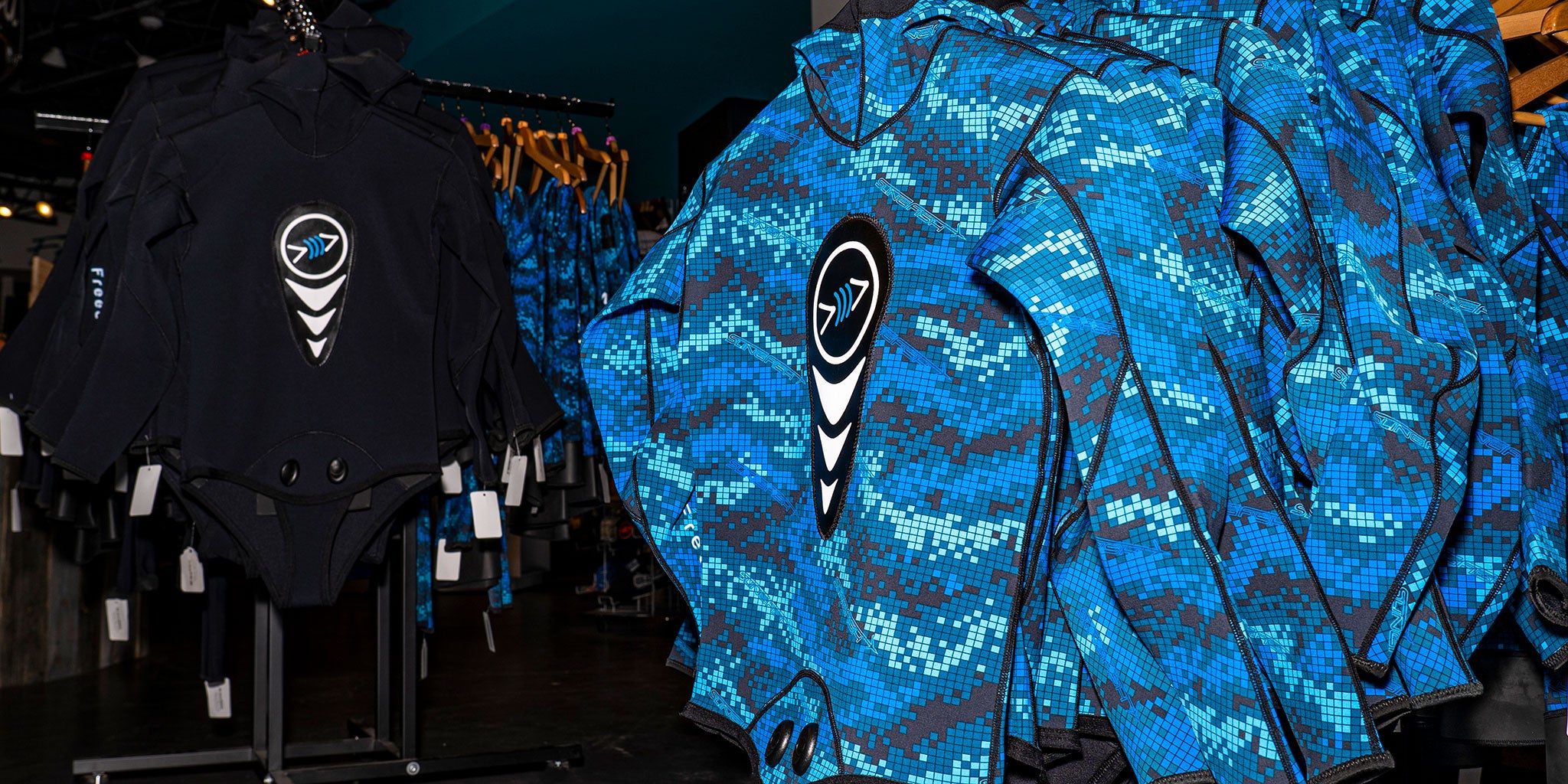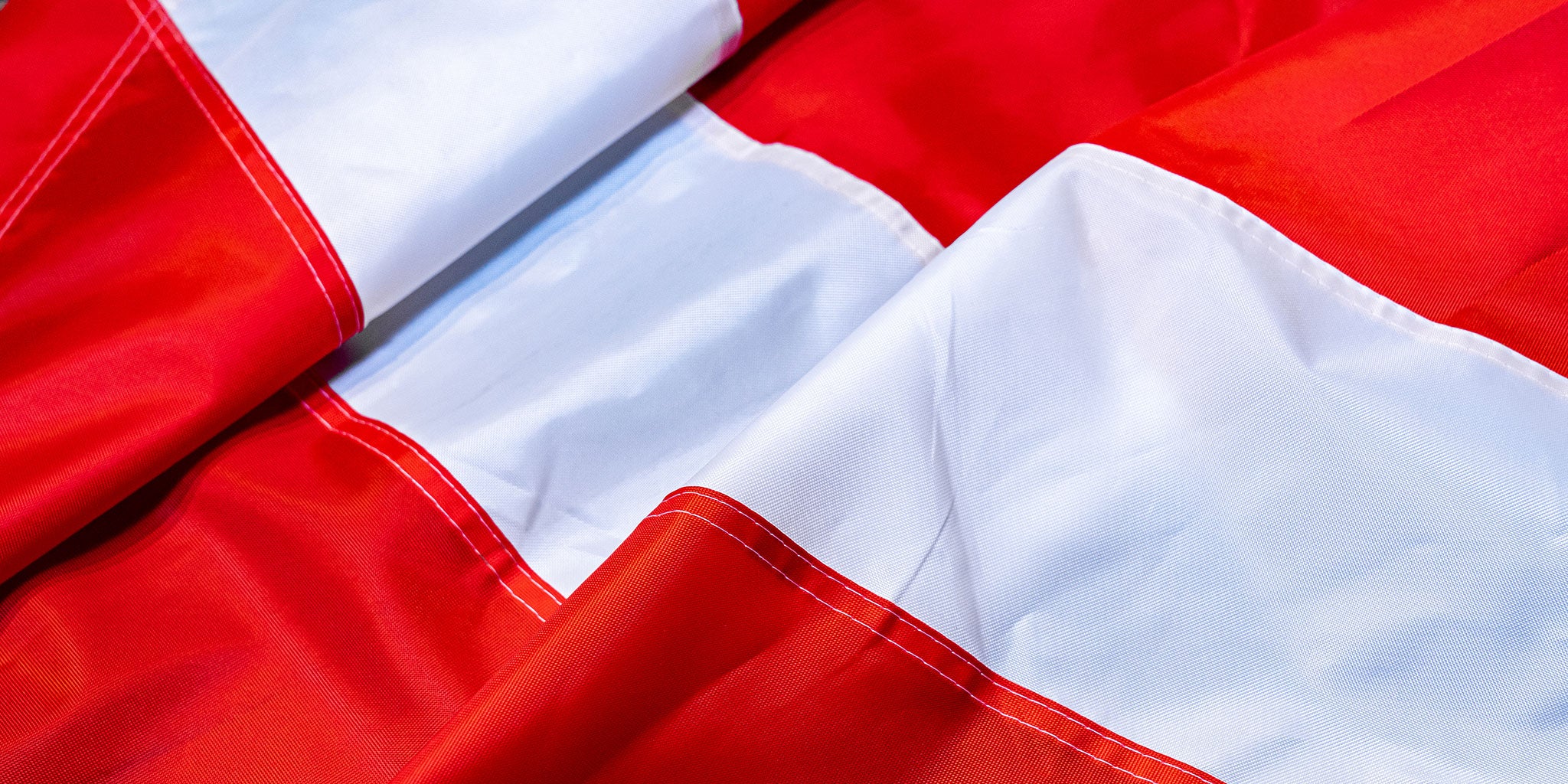Meet our Instructors- Christian and Lukas
How long have you been freediving?
From the day I learned to swim I had an affinity for seeking out the deep end in hopes I could touch the bottom. The only problem I encountered was the lack of depth I had access to growing up landlocked in central Texas. Even still, I was fascinated by spearfishing videos throughout middle and high school and spent hours on end practicing my breath hold. It wasn’t until I enrolled in college, here in Florida, in 2017 that I actually got to dive into the sport.
When did you first take a freediving course? Where? What was your experience in the class?
In college I taught myself to freedive through Youtube Academy. In 2018, my freshman year, I showed my dad a video of my first ever dive to 100 feet, which scared him bad enough to force me to take a freedive course. I went into the course both excited to learn new tips and tricks, and a little nervous that my learning would be restricted due to the depth limits of the course. Throughout the entire course I was astounded by how much I had been doing wrong- both techniques and safety. And by the time we got into the water I was blown away by how much easier my breath holds and dives felt.
When did you become an instructor?
I became an instructor during my senior year of college in 2021. After working as a speargun smith for several years I jumped at the opportunity to be in the water professionally and introduce others to the sport I’m passionate about.
What is your favorite part about teaching?
Spearfishing is my passion and I enjoy helping others learn the fundamental freediving skills required to put their own fish on the dinner table, as well as breaking down the nitty gritty details of hunting in the spearfishing courses. Freedive safety is also a huge passion I have. Coming from a self-taught diving background, I was the poster child of everything you are NOT supposed to do. I enjoy getting to help both new and seasoned divers learn how to get into the water in a much safer way that I first did.
Where is your favorite place to dive?
The Bahamas is by far my favorite place to dive. The water clarity, amazing fishery, and abundant coral blows my mind to this day. One day I hope to visit South Africa and Australia to test my luck in their waters.
What is your best advice for new freedivers?
My best advice to students before their first course is to come in hydrated and with an open mind. Start drinking plenty of water days before your course and every aspect of your diving from equalizations to oxygen consumption will thank you for it. Also, come in with an open mind. You may have misconceptions about what freediving is, how it works, or even what you think you are capable of. If you come in to your course with an open mind you will enjoy the class
and dive better than you expected.
What is the best experience/ encounter you’ve had in the ocean?
In 2019 I shot my first ever cobia in Jupiter. While I was still fighting the fish to the surface a great white shark came through. Everyone in the water- myself, my dive buddies, and even my fish all froze as the shark came through. The shark was completely uninterested in my fish, myself or my dive buddies. It was just cruising through the water column, and we were lucky enough to be in its path before it swam out of sight.
What do you do to mentally prepare for a dive?
Before a dive I like to close my eyes and pretend I’m falling asleep. The business of life is not something I often escape on land, so I make sure to take advantage of my breathe up before each dive.
Why are you passionate about teaching freediving?
Freediving and spearfishing bring a level of peace and calmness to my normally hectic and energetic life. Over the years, the highs and lows I’ve experienced while freediving have allowed me to become a better version of myself. I think everyone should get to experience this, and love the idea of being part of that introduction.
What is the greatest challenge you see in new students and how do you encourage them
to get over that obstacle?
1. Equalization- Equalization is the largest issue I see students face. Equalization is a very difficult thing for instructors to diagnose because we cannot see what is going on inside your body. If you have any concerns about equalizations coming into your course, reach out to your instructor before your course so you can get a head start on equalization exercises. If you experience any equalization issues during your course, let the instructor know immediately so they have as much time as possible to help fix the issue.
2. Seasickness- Many of my students have little to no experience on boats in the ocean. If this is a concern you have, make sure you’re hydrated, looking at the horizon, and have the wind in your face as much as possible while aboard. Seeking out medical advice for the appropriate anti-nausea medication/solutions is also a great idea.
How long have you been freediving? I’ve been freediving all my life, but since I’m from Slovakia, a very landlocked country, my options were severely limited. I mostly freedived in murky lakes and rivers. My parents thought I didn’t know how to swim because I always sank like an anchor to the bottom, where I found everything so much more interesting.
When did you first take a freediving course? Where? What was your experience in the class? I took my first freediving course in 2022 with Christian at Florida Freedivers, and I absolutely loved it. I was extremely excited because I had been waiting for this my entire life. I was a little worried about how I would handle the depth, as I had never tried to go deeper than 33 feet before.
When did you become an instructor? The freediving course was a life-changing experience for me. Right after completing the course, I wanted to progress to the intermediate level to challenge myself, see how deep I could go, and discover my limits. During this course, I reached 125 feet. I remember one particular dive when I reached 120 feet, and I looked up to see serene rays of light shimmering on the water’s surface. It felt almost like a calling. From that moment on, I decided to dedicate every second to changing my career (as a restaurant manager in South Jersey) to becoming an instructor and helping others have those magnificent experiences.
What is your favorite part about teaching? My favorite part of teaching freediving is witnessing students push beyond their perceived limits. It’s always rewarding to see them surprise themselves, often doubling or even tripling their breath-hold capacity during the course. With the techniques and tools we provide, they continue to build on those skills long after the course is over.What’s even more fulfilling is seeing students develop a genuine passion for freediving and its beauty. It's not just about creating great freedivers—we focus on fostering safe divers who are equipped with a solid understanding of safety protocols.
Where is your favorite place to dive? I live in Fort Lauderdale, which means I spend a lot of time spearfishing, lobstering, and freediving in the area. I also regularly dive in Palm Beach, making it another one of my favorite spots.
What is your best advice for new freedivers? The best advice I can offer to new freedivers about to take a course is to trust your instructor. We’ve seen many common mistakes and know how to correct them, helping make your dive smoother, more relaxed, and safer. Trust the experience of your instructor and allow them to guide you.
What is the best experience/ encounter you’ve had in the ocean?Spearfishing among 15 bull sharks and swimming alongside a pod of wild dolphins are some of the most exhilarating experiences I’ve had.
What do you do to mentally prepare for a dive? My mental preparation before a dive involves visualizing the entire dive and deepening my state of relaxation. For most people, relaxation means lounging on the couch and emptying their mind. However, for freedivers, relaxation goes much deeper. I focus on controlling my breath and slowing down my body and mind, almost like entering a slow-motion state.
Why are you passionate about teaching freediving? I love seeing people get excited about the sport, constantly engaging in self-discovery, and unlocking primal skills that are naturally within us. These skills often lie dormant until we practice and train them.
What is the greatest challenge you see in new students and how do you encourage them to get over that obstacle? In freediving, we face two primary limiting factors:- Breath-hold – determining how long you can stay underwater.
- Equalization – controlling how deep you can go.
Initially, most students worry about their breath-hold, but they soon realize they have more untapped potential than they think. Equalization, on the other hand, can be trickier. Some students pick it up quickly, while others take time. It’s challenging to describe because it involves moving parts inside your head that you're not used to controlling. Sometimes, it takes a few days for it to click. I always give my students some great homework to help keep their equalization skills sharp before our ocean sessions.


